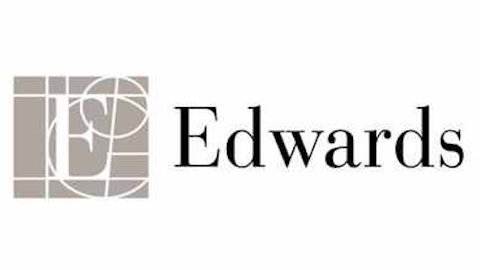In 2012, shares of Colgate-Palmolive Company (NYSE:CL) have been a good addition to any investor’s portfolio, returning 15.2% while providing a healthy dividend yield of 2.33%. These sterling gains have outpaced the household and personal products industry (2.4%), and some of Colgate’s closest competitors, including The Procter & Gamble Company (NYSE:PG), Unilever N.V. (NYSE:UN), and The Clorox Company (NYSE:CLX). Out of these three peers, only the latter has sniffed the success of Colgate-Palmolive – no pun intended – though it has still given investors only half the capital appreciation of CL.
Curiously, corporate insiders within Colgate-Palmolive Company (NYSE:CL) have begun to sell shares of their company on the open markets in recent weeks. Aside from following strategies like these, individual investors can profit from tracking insider trading. Now, in most cases, buying activity represents a stronger indicator of a stock’s fortunes, though insider selling should not be dismissed. While it should never be the number one reason to dump shares of a stock, it is notable that this particular company’s insiders seem to be taking their gains on the heels of a stellar second quarter earnings release.
Since Colgate reported modest revenue gains and earnings in line with analyst estimates on July 26th, seven insiders have sold a combined 94,080 shares of CL worth a total value of nearly $10.1 million. The most bearish of these shareholders has been Thomas Green, the company’s Chief Information Officer. Over the past week, Green has sold more than 43,000 shares, trimming his total holdings of Colgate by nearly 20%. Senior VP Delia Thompson has also sold a hefty amount of CL stock, cashing in $2.7 million worth of options. Colleagues Rosemary Nelson, Michael Corbo, Justin Skala, Delano Lewis, and John Cahill also exercised $2.6 million in options over this time, making an average profit of 78.3% on each transaction.
Since this recent round of buying activity has begun, shares of Colgate-Palmolive Company (NYSE:CL) have slid by 0.66%, with valuation indicators signaling that the stock may be overbought at its current price near $106. At a Price-to-Earnings ratio of 21.1X, Colgate’s earnings are more expensive than the industry average (19.3X), Procter&Gamble (20.0X), Unilever N.V. (20.0X), The Clorox Company (17.7X), and its own 5-year historical average (19.9X). When growth is factored in, this overvaluation looks even more prominent, as the stock is trading at a bloated PEG ratio of 2.4, above the fair valuation range between 1.0 and 2.0. What’s more, this PEG is also above the likes of Unilever N.V. (1.5) and The Clorox Company (2.1).
Now, it would be easy to say that this premium would be warranted if Colgate was a high-growth stock, but that simply is not the case. In a post-recession environment where the household and personal products industry has grown its earnings by an average of 13.9% a year, the company falls flat, with an EPS growth of 10.5%. Moreover, free cash flows are actually shrinking, from $2.7 billion in 2009 to a $2.3 billion last year. Despite these declines, shares of Colgate-Palmolive Company (NYSE:CL) are actually valued at their highest Price-to-Cash Flow ratio (17.6X) in five years. In fact, Colgate’s cash hoard has historically traded at a 63% premium above the S&P 500 over the past decade. This year, it appears much more expensive, trading at a 97% premium.
To reiterate: Colgate has experienced an impressive amount of capital appreciation in 2012 thus far, but looks to be overbought at current levels. Despite sporting less than ideal levels of earnings and cash flow growth, shares of CL are trading at a premium in both areas. WealthLift’s Sentiment Index does rate the stock as a moderate buy, but the percentage of users placing an “underperform” rating on CL has spiked by 20% in the past week.
For more trading ideas in today’s unstable market environment, visit WealthLift INSIDER.






